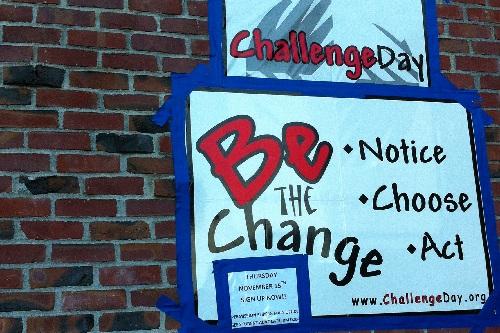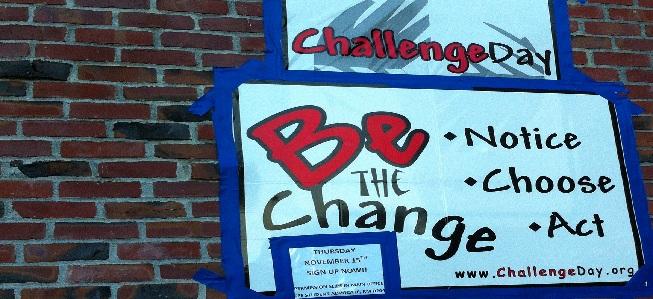As Challenge Day nears, stories about its transformative power circulate among students. Some claim that it made them cry, while others merely say that it was a “good experience.” But we don’t often hear from the third, less represented group: the one that doesn’t benefit from Challenge Day.

For Challenge Day to be useful in attendance, students need to ask themselves whether Challenge Day is right for them.
Because of those very rumors surrounding Challenge Day, students are often let down by the actual event. Those that are enthusiastic about its transformative power rave about it, and the general expectation about what a student will experience builds — or worse, is skewed. The lens through which the stories lead students to view Challenge Day limits the experience for them. And these stories are so ingrained into the MVHS culture that people are afraid to question them.
Because of this, many students are quick to criticize those who don’t completely buy into Challenge Day. However, it is not that people who don’t benefit from Challenge Day are not capable of getting the big picture. They just don’t benefit from from the group-based environment that Challenge Day presents. Activities like “family therapy,” “crossing the line” and “open mic” all suggest an environment that requires people to open themselves up to a large group of strangers, something that might not be effective for those who are not as open as others.
Although some students attending Challenge Day are honest with themselves about their emotions, students that are not will undermine the overall experience. Those that don’t thrive in this environment should recognize that and seek other avenues for their personal growth instead. Challenge Day is beneficial, but only to students that are willing to be open with themselves and others.
Those that do advocate Challenge Day should not be so zealous in their appreciation that they forget that Challenge Day is not always the solution to people’s problems. Challenge Day isn’t for everyone.








